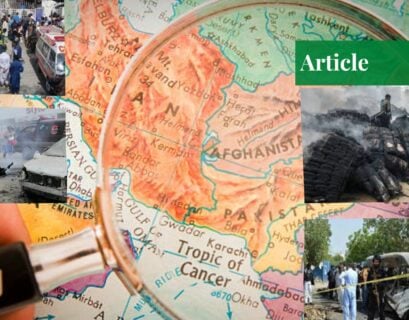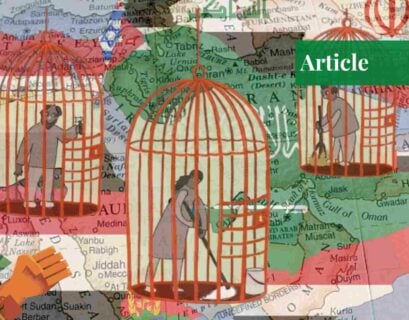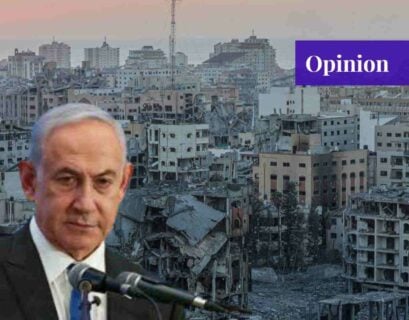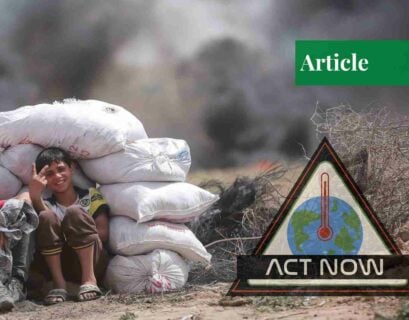The protection of civilians in armed conflicts has its roots in international humanitarian laws as traditional legal efforts aimed at reducing as much as possible, suffering, loss, or damages caused by war. It also distinguishes between civilian persons or objects and military targets, and further places certain obligations on persons involved, primarily members of the armed forces. Therefore, this approach designates the armed forces as the principal implementing agents of protection and their commitment to abide by the rules remains paramount.
However, this classic perception and obligation have gradually waned off as the military has been found wanting in some practices and activities that include a pattern of deliberate war against civilians. In most cases, these acts are carried out by relatively poorly or ill-trained members of the armed forces and those with an abysmal understanding of humanitarian laws and strategies for effective engagement with local populations.
In Nigeria’s northeast, the Boko Haram Terrorist Group (BHTG) has been named one of the deadliest groups in contemporary times due to the scope, intensity, and lethality of their activities. In responding to this security challenge, the Nigerian military has spearheaded the campaign to crack down on the insurgents by launching a series of counter-terrorism and counter-insurgency operations within the geopolitical region.
The realization of this task also translates to protecting civilians who are vulnerable victims in armed conflicts and often prime targets of terrorists’ attacks and activities. However, two Reuters reports released on 07 and 12 December 2022 made some striking revelations, claiming that Nigerian soldiers in the northeast theatre of operation were engaged in a series of massacres of children who were either smothered, poisoned, or shot.
The victims are presumed to be fathered by members of the BHTG and young boys who were also perceived to be fighters of the sect. Findings from the report further revealed that the Nigerian army runs an abortion programme in the northeast that forcibly terminates the pregnancies of young girls and women who were raped and impregnated by BHTG fighters.
Since the release of the reports, there have been public condemnation and concerns regarding the moral conduct of those saddled with the responsibility to protect and safeguard the civilian population. On the other hand, the Nigerian military released a counter statement, describing the reports as “concocted allegations”. Unpleasant as it may sound, these reports are not the first of their kind to indict the Nigerian military for engaging in outrageous abuses that include extrajudicial killings, arbitrary arrests, unlawful detention, and sexual violence of civilians.
In the past, organizations such as Human Rights Watch and Amnesty International documented the abuses and excesses of Nigerian military forces against civilians, especially women and children, since the outbreak of the insurgency in 2009 and its eventual transmogrification to assume a transnational dimension thereafter. In responding to these events, the Nigerian government has made some attempts to investigate human rights abuses and violations allegedly perpetrated by the Nigerian armed forces in the war against the BHTG.
These efforts have been somewhat unsuccessful as no reports or submissions have been made public to account for such efforts and, in most cases, there were claims of insufficient evidence to support any abuses by the Nigerian military. On this note, these unfolding events unearth the imperative of operational, ethical, strategic, and political necessity to uphold the values and idiosyncrasies of civilian protection binding on all parties in conflict.
A departure point should be the re-evaluation of Nigeria’s military operations to accommodate a people-centric posture against one that is only enemy-centric. This will afford the government the latitude of protecting its civilians from the clutches of the BHTG while simultaneously minimizing civilian harm caused by its own military operations. To deliver on this task, troops must develop a protection mindset and adopt harm mitigation policies, tools, and practices applicable within the confines of their operations.
It is also not unlikely that the numerous human rights abuses and violations levelled against the Nigerian military can lead to the erosion of civil-military relations and further strain the image of the military in the eyes of the wider community. Therefore, the Nigerian military as a matter of urgency needs to formulate appropriate Standard Operating Procedures (SOP) to address how such poor conduct will be investigated and addressed when it does occur.
Such SOPs will redeem the image of the military in the eyes of civilians and shape public perceptions of the legitimacy of the Nigerian military as it seeks to assert control over conflict-affected areas. At the strategic, tactical, and operational levels, military commanders need to also undergo special pre and in-deployment training and education to improve their understanding of international humanitarian laws, and human rights laws.
Most importantly, the practical application of the concepts of distinction and proportionality in military operations. This will accord them better foresight when leading operations by giving well-informed orders for troops to follow in terms of protecting civilians.
Undoubtedly, intentionally killing civilians in armed conflict is a war crime and if the killing is carried out in the context of widespread or systematic attacks on civilians, it is termed a crime against humanity. Therefore, the Nigerian military should conduct full, timely investigations on all allegations of harm to civilians resulting from military operations.
Oversight and accountability of forces are critical to the government’s commitment to adhering to national and international laws. In addressing these cases, domestic courts should be ready to investigate all allegations of abuse, hold violators accountable under the law, and provide full redress for victims.
The International Criminal Court (ICC) should also be willing to step in and open an investigation into possible war crimes and crimes against humanity by both Nigerian security forces and insurgents where the government is unwilling or unable to do so. Adopting these measures will help in improving the Nigerian military’s scandalous human rights records in the wake of the roles it plays in protecting the Nigerian territory and people.
If you want to submit your articles and/or research papers, please check the Submissions page.
The views and opinions expressed in this article/paper are the author’s own and do not necessarily reflect the editorial position of Paradigm Shift.



















